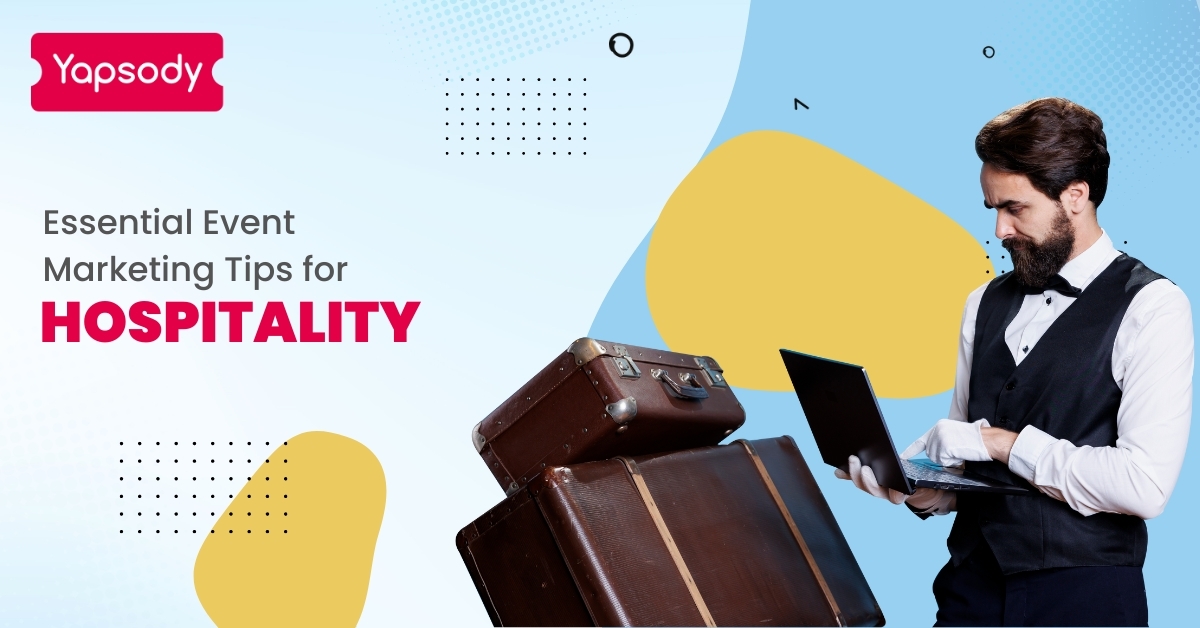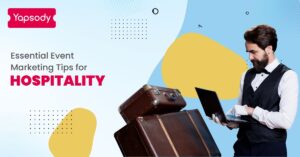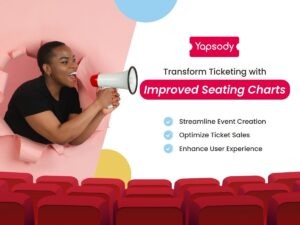The hospitality industry thrives on creating memorable experiences. Whether it’s a cozy cafe, a bustling restaurant, or a luxurious hotel, hosting events can significantly boost visibility and revenue. To make the most of these opportunities, effective event marketing is crucial. Here are some essential tips to ensure your hospitality events are a resounding success.
(Read more about why events are essential for hospitality in our blog: Why Events Are Crucial for the Hospitality Industry).
What are the Essential Event Marketing Tips for Hospitality?
1. Define Clear Objectives
Before diving into marketing, it’s important to set clear, measurable objectives. Are you aiming to increase brand awareness, attract new customers, or boost sales during a slow period? Understanding your goals will help tailor your marketing strategy and measure success.
For more tips on effective event planning, check out our blog: How to Ace Hospitality Event Planning? Top Tips to Consider
2. Know Your Audience
Understanding your target audience is key to effective marketing. Research their preferences, behaviors, and demographics. Use this information to craft personalized messages and choose the right channels to reach them. For instance, if your target audience is young professionals, social media platforms like Instagram and LinkedIn might be most effective.
Learn more about tailoring guest experiences in our blog: How To Elevate Guest Experiences In Your Hotel
3. Leverage Social Media
Social media is a powerful tool for event marketing. Create engaging content that highlights the unique aspects of your event. Use high-quality images, videos, and stories to capture attention. Encourage user-generated content by creating event-specific hashtags and offering incentives for sharing. Platforms like Facebook, Instagram, and Twitter can help you reach a broad audience and generate buzz.
For ideas on creating engaging social media content, read our blog: 10 Entertainment Activities That’ll Rock Your Cafe
4. Collaborate with Influencers
Partnering with influencers can significantly amplify your event’s reach. Choose influencers who align with your brand and have a genuine connection with their followers. They can help promote your event through their platforms, providing authentic endorsements that resonate with potential attendees.
5. Utilize Email Marketing
Email marketing remains one of the most effective ways to reach your audience. Build a mailing list and send out targeted campaigns with event details, special offers, and reminders. Personalize your emails to make them more engaging and relevant. Consider segmenting your audience based on their preferences and behavior to increase open rates and conversions.
6. Create a Compelling Event Page
Your event page is the hub of all event-related information. Ensure it is visually appealing, easy to navigate, and mobile-friendly. Include all essential details such as date, time, location, and ticket pricing. Use compelling visuals and concise descriptions to attract attention. Integrate with a reliable ticketing platform like Yapsody to streamline the booking process and enhance user experience.
7. Offer Early Bird Discounts
Incentivize early registrations by offering discounts or special perks for early birds. This creates a sense of urgency and helps gauge interest in your event. Highlight the limited-time offer in your marketing materials to encourage quick action.
8. Engage with Your Audience
Engagement is key to maintaining interest and building excitement. Respond promptly to inquiries on social media and other platforms. Host live Q&A sessions, polls, and contests to keep your audience involved. The more engaged your audience is, the more likely they are to attend and promote your event.
9. Use Analytics to Refine Your Strategy
Track the performance of your marketing efforts using analytics tools. Monitor metrics such as engagement rates, website traffic, and ticket sales. Use this data to identify what works and what doesn’t, and adjust your strategy accordingly. Continuous improvement is essential for long-term success.
10. Leverage Partnerships
Collaborating with local businesses and organizations can expand your reach. Partner with companies that complement your event, such as catering services, entertainment providers, or local attractions. Cross-promote each other’s services to attract a wider audience.
See how Yapsody’s integration with INFOR HMS enhances hospitality partnerships in our blog: Yapsody Integrates with INFOR HMS: Elevate Hospitality Event Ticketing
Conclusion
Effective event marketing in the hospitality industry requires a strategic approach, creativity, and continuous engagement. By defining clear objectives, understanding your audience, leveraging social media, collaborating with influencers, utilizing email marketing, creating compelling event pages, offering early bird discounts, engaging with your audience, using analytics, and leveraging partnerships, you can ensure your events are well-attended and successful.
For a seamless event management experience, consider using Yapsody’s ticketing platform. It offers a range of features designed to simplify the event planning process, enhance guest experience, and maximize your marketing efforts.
Start implementing these tips today and watch your hospitality events flourish!
Frequently asked questions
1. Why is defining clear objectives important for event marketing in hospitality?
Defining clear objectives is crucial as it helps guide your marketing strategy, ensuring all efforts are aligned with your goals. Clear objectives allow you to measure success and make data-driven decisions to optimize future events. Without specific goals, it’s challenging to assess the effectiveness of your marketing campaigns and understand what worked and what didn’t.
2. How can social media be effectively used for event marketing in hospitality?
Social media is a powerful tool for event marketing due to its broad reach and engagement potential. Create engaging content that showcases unique aspects of your event, such as high-quality images, videos, and stories. Use event-specific hashtags to encourage user-generated content and increase visibility. Platforms like Instagram, Facebook, and Twitter can help generate buzz and attract a wider audience.
3. What are the benefits of partnering with influencers for event marketing?
Partnering with influencers can amplify your event’s reach and provide authentic endorsements. Influencers have established trust with their followers, making their recommendations more impactful. They can promote your event through their platforms, creating excitement and attracting potential attendees who trust their judgment. Choose influencers who align with your brand and have a genuine connection with their audience.
4. How can email marketing enhance event promotion in the hospitality industry?
Email marketing is highly effective for reaching your audience directly with personalized messages. Build a mailing list and send targeted campaigns that include event details, special offers, and reminders. Personalize emails to make them more engaging and relevant. Segment your audience based on preferences and behavior to increase open rates and conversions. Email marketing allows for direct communication and helps build anticipation for your event.
5. What role do partnerships play in successful event marketing for hospitality?
Partnerships with local businesses and organizations can significantly expand your reach and attract a broader audience. Collaborate with companies that complement your event, such as catering services, entertainment providers, or local attractions. Cross-promote each other’s services to leverage each other’s customer base. Partnerships can provide additional resources, enhance the guest experience, and increase the overall success of your event.


